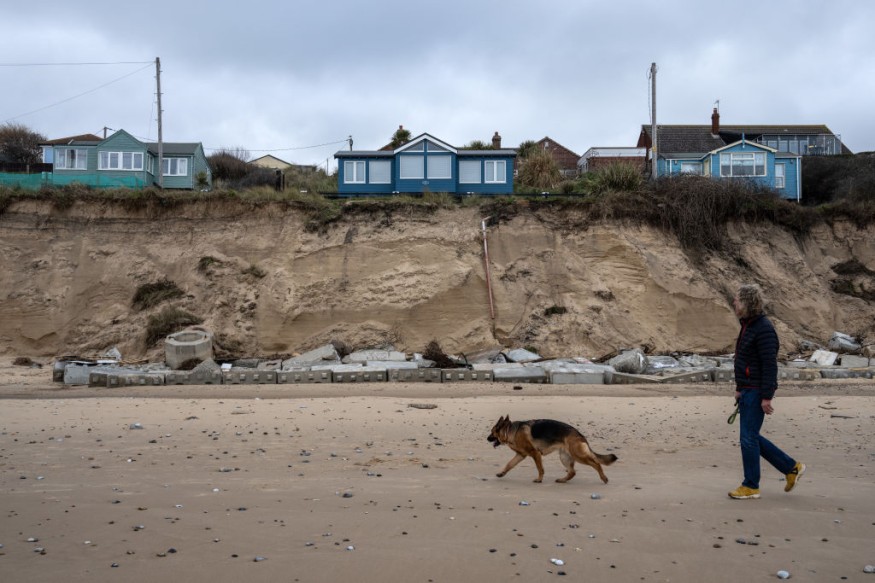
The latest report showed that a young dog walking on a lakeside in the United Kingdom died after it suddenly ate toxic blue-green algae.
Pet owners walking their dogs should stay alert for possible toxic food or algae they could likely ingest.
Dogs are exploratory, and they can fall victim to toxic algae. The blue-green algae can become deadly to animals, including dogs.
According to the Minnesota Pollution Control Agency, the blue-green algae is considered harmful to animals. The toxic algae, also known as cyanobacteria, could develop as blooms.
The report noted that algal blooms can be found in lakes and other bodies of water, including ponds and shorelines.
Pet owners are not advised to walk or allow their pets to swim in areas with algae blooms because it could become dangerous.
A young dog died from toxic algae
In the latest report, Newsweek said that a young dog died after it accidentally encountered fish on the lakeside.
According to the report, the dog's owner, Jan Egginton, was with her dog as they walked on the lakeside of the Wimbleball in Exmoor, United Kingdom.
Meanwhile, the Minnesota Pollution Control Agency added that animals exposed to the toxic algae could show immediate symptoms when they are exposed.
The report noted some noticeable symptoms: diarrhea, seizure and vomiting, urging pet owners to bring their pets to the nearest veterinary clinic immediately.
While algae bloom could be present in water, the report highlighted that the dog named Cove did not have a close encounter with the waters.
Meanwhile, a dog charity in the UK, Kennel Club, explained that the pet was not feeling well when they returned from the lake.
They added that they found their dog paralyzed, and the young dog later died.
Furthermore, the family was saddened because they did their best to protect their dog from harm, including poisonous plants and food.
According to Newsweek's report, Dr. Andrew Turner of the Center for Environment, Fisheries and Aquaculture Science (CEFAS) said the dog was exposed to blue-green algae blooms.
Keeping your dog safe
Beachgoers with dogs should keep alert for the possible presence of algae blooms near the beach.
It is best to look for signs of algae in the area or ask authorities if it is considered safe for your pet. Pet owners could also reschedule walk.
Furthermore, keep an eye on your dog, and don't let them to roam around or eat anything on the ground.
Did you know?
According to the Food Drug Administration (FDA), understanding the harmful edible food for your dog is essential. Here are the food and non-food items that your pets should avoid:
- Garlic, chocolate, caffeine products,
- Onion, salt, avocado, raisins, grapes
- Mouse bait, mothballs and insecticides
As pet owners, pets like to roam around, and protecting them from danger is important for their life.
Related Article : Young Dog in Queensland Finally Rescued After Being Trapped Under Concrete Driveway
For more similar, don't forget to follow Nature World News.
© 2025 NatureWorldNews.com All rights reserved. Do not reproduce without permission.





